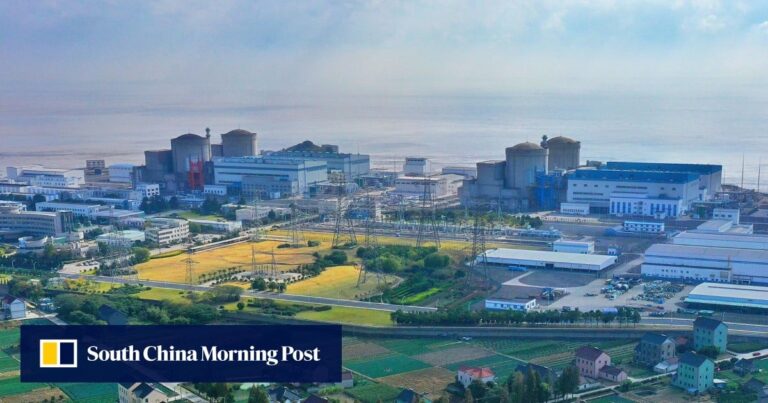China has begun mass producing radioactive isotopes widely used in science and medicine, ending its near-total dependence on imports.
The state-run China Science Daily reported on Sunday that a commercial nuclear reactor in eastern Zhejiang province was producing large amounts of carbon-14, an isotope with uses ranging from detecting bacterial infections to monitoring water quality.
China relies almost entirely on imports for isotopes, with supplies coming from countries such as Canada, South Africa, Australia and Russia.
Supplies from Canada were cut in 2009 when Canada’s National Research Universal Reactor, the world’s largest supplier of carbon-14, halted production after a leak was discovered. The reactor resumed production a year later.
“China’s carbon-14 supply is almost entirely dependent on imports, with high prices and no guaranteed supply,” the paper said.
In 2022, the state-run Science and Technology Daily reported that China has imported more than 90% of its medical isotopes in recent years, and the types it can purchase are limited.
In June 2021, the China Atomic Energy Administration, in cooperation with various ministries, launched a plan to produce medical isotopes in China to stabilize and secure domestic supplies.
The project reached a milestone on Saturday afternoon when isotopes were extracted from the Qinshan nuclear power plant’s heavy water reactor unit.
China hosts global nuclear safety conference, but Fukushima is not mentioned
China hosts global nuclear safety conference, but Fukushima is not mentioned
The facility first opened in 1992 and is the only facility in the country to feature a commercial heavy water reactor with technology provided by Canada.
According to CNNC, the heavy water technology allows the reactors to operate at higher power and more stably for longer periods of time than other types of reactors.
According to the company, the Qinshan plant cooperated with a number of institutions, including the Shanghai Institute of Nuclear Engineering Research and Design, to realize the mass production plan.
The project started in 2019 to demonstrate feasibility, and first commercial production of carbon-14 took place in April 2022.
“We expect to be able to produce about 150 curies of carbon-14 isotope per year,” state news agency Xinhua quoted factory manager Shang Xianhe as saying on Saturday.
Xiang said the production volume is expected to be enough to “fully meet market demand” in China.
According to CNNC, the carbon-14 isotope is expected to hit the market this year.
China aims to expand use of nuclear power amid threat of energy crisis
China aims to expand use of nuclear power amid threat of energy crisis
In addition, the Qinshan factory is also equipped with an advanced irradiation isotope production facility capable of producing isotopes such as lutetium-177 and yttrium-90, which are also used in medicine.
Meanwhile, construction of the world’s most powerful solution-based medical isotope test reactor began in January this year in Sichuan Province, southwest China.

